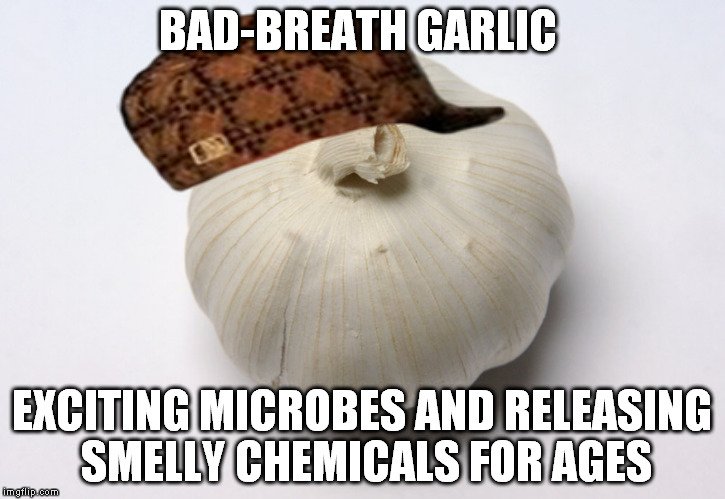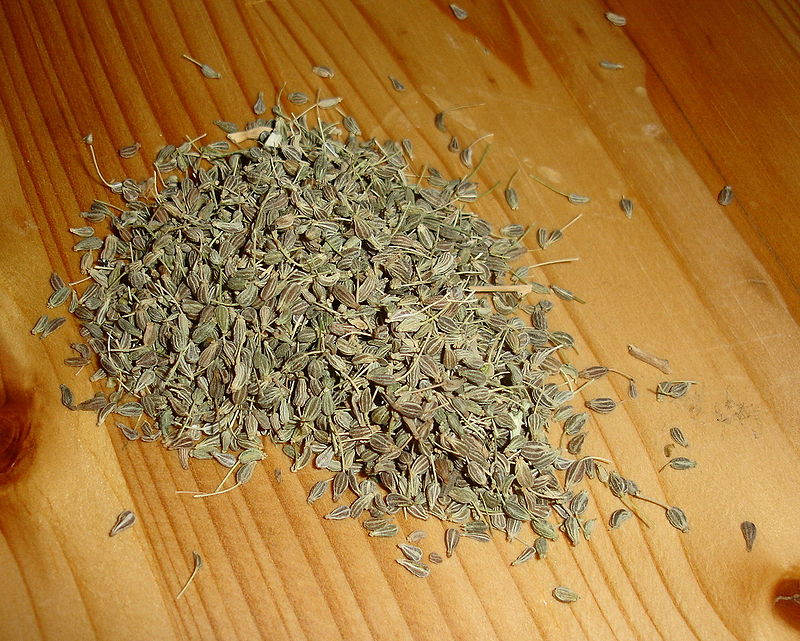Table of Contents (click to expand)
Garlic breath is caused by organic sulfur compounds that are present in garlic. Once these compounds enter your body, they are metabolized by your liver and sent to your lungs, which is why your breath smells bad for a couple of hours after you consume garlic. Some of the compounds are also excreted through your urine and sweat, which is why sometimes your sweat or urine also smells like garlic.
People who relish eating onion-heavy dishes often have to deal with a nasty after-effect – smelly breath! However, this is not just true of onions; there are lots of vegetables (garlic, shallots, etc.) that cause bad breath after you consume them. Why do they do that? And perhaps more importantly, is there anything you can do to get rid of the foul smell?
Onions And Garlic: Members Of The Same Family
Some of you (especially those who have a thing for botany) may already know that both onions and garlic belong to the same family of flowering plants called Allium. It is a genus of monocotyledonous flowering plants that, in addition to the ones mentioned above, include shallots, scallions, leeks, chives and many other wild species. Therefore, consuming pretty much any of these vegetables will give you the same characteristic bad breath.

Also Read: Why Is Alcohol So Obvious On A Person’s Breath? How To Get Rid Of It?
Why Do They Cause Bad Breath?
The unpleasant smell of a person’s breath (called ‘halitosis’ in medical terms) may be caused by different things, but the characteristic bad breath that one experiences after consuming garlic – often called ‘garlic breath’ – is mostly related to the contents of garlic, i.e. the sulfuric compounds present inside it. Moreover, garlic is also considered to be a promoter of certain microbes inside your mouth that are commonly held responsible for causing bad breath.

Among the various chemicals that garlic contains, the chief culprit is a sulfuric compound called allyl methyl sulfide. For chemistry buffs, this is an organosulfur compound with two functional groups: an allyl and a sulfide. If you were to check it out in a lab, you would likely notice that it’s a colorless liquid with a strong odor that we usually associate with garlic. In fact, it is this chemical that gives garlic its foul smell -not the other way round.
To add to your woes, rinsing your mouth our or brushing your teeth won’t help to completely rid yourself of the smell either, as some of the sulfuric chemicals present in garlic get metabolized and end up in your bloodstream. Since blood flows to every part of the body, the smelly chemicals also ‘touch’ practically every part of you before eventually being excreted from your body through different routes, such as during exhalation (when you breathe out) and even through your pores. This is the reason why your entire body sometimes seems to smell when you consume a hefty dose of onion or garlic. The length of time that one’s breath smells depends on how long these smelly compounds remain inside the body (before being excreted), which in turn depends on how much onion or garlic they’ve consumed.
Also Read: Why Does The Smell Of Some Food Linger On The Skin?
How Can You Get Rid Of The Smell?
Unfortunately, there’s almost nothing that can guarantee an absolutely ‘clean’ smell after eating garlic. However, there are some popular remedies that do help in suppressing the stench, to a certain extent.

Flossing your teeth and cleaning your tongue with a tongue scraper can help a bit to remove the lingering sulfuric compounds from your oral environment. Parsley is also a popular food to counteract the smell of ginger; in fact, it’s used in a lot of recipes containing high amounts of ginger for the same reason. Drinking milk along with garlic-heavy food also reduces the chances of bad breath. Other things that are commonly used to neutralize bad breath include mint, cardamom, cloves, fennel and anise seeds.
Now, if you’re out having dinner with friends and want to avoid an embarrassing situation later on, either tote a small packet of cardamom or simply keep your eyes and hands off any dishes that are rich in onion and garlic.
How well do you understand the article above!

